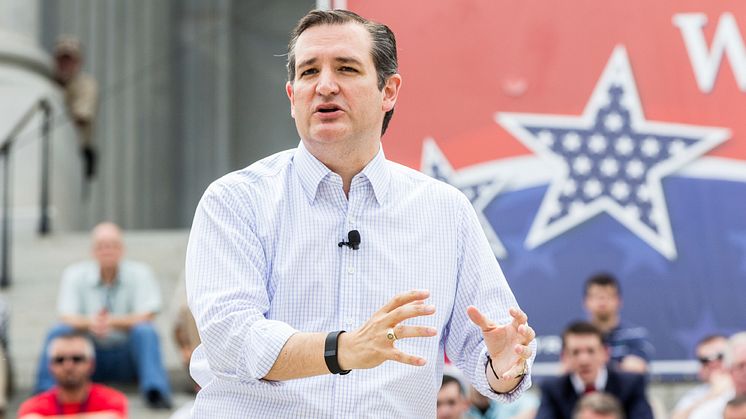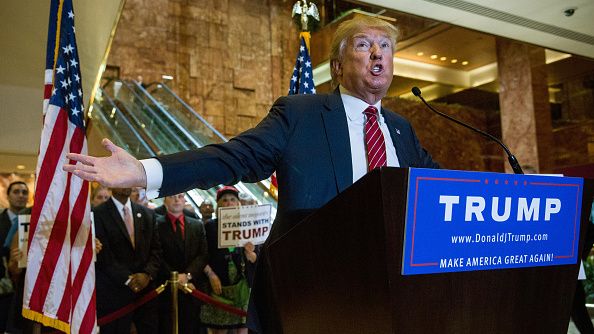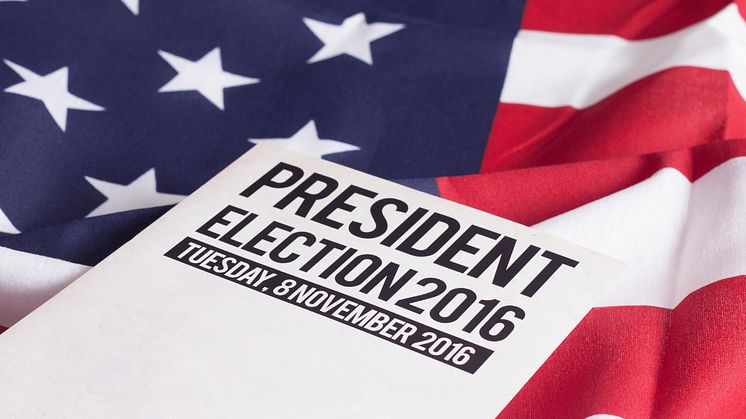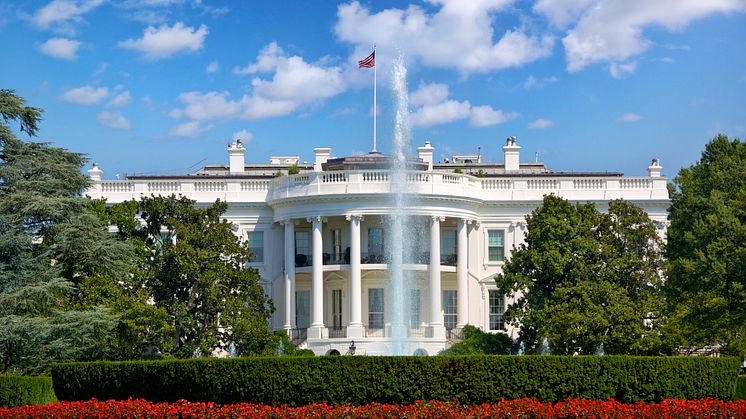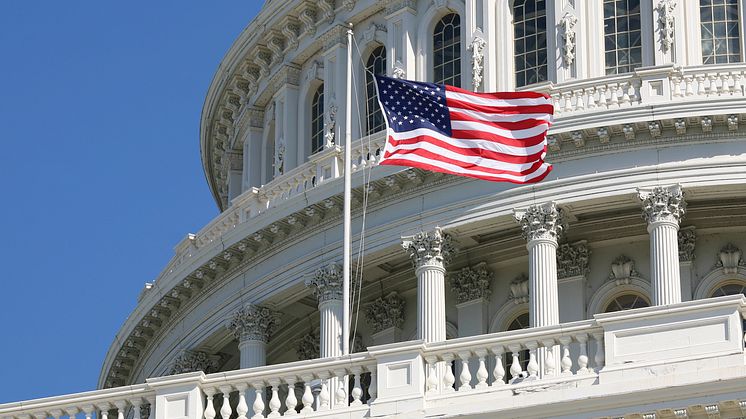
Press release -
COMMENT: Why the US presidential primary system is no way to run a democracy
Michael Patrick Cullinane, Reader in US History at Northumbria, writes about American politics for The Conversation.
The US baseball season is infamously long. Each team plays 162 games from the first week of April to the last week in September. October is reserved for the playoffs and the World Series. Then there’s the pre-season: spring training starts in February, and the multi-million dollar trade deals consume much of the preceding winter months. November tends to be quiet, a reflective period to consider the year gone by and speculate on the one ahead. Yet the marathon season that follows, fans anticipate opening day as if it were the only event in the calendar.
America’s other favourite pastime, politics, works in much the same way. The Iowa caucuses are opening day, and if you believe all the hype, they can seem as important as the November main event. And then, once Iowa’s done with, everyone suddenly remembers the season is actually very, very long.
This would be less absurd if every election were not talked about as if it were exceptional. Journalist E J Dionne called this year’s road to Iowa a “painful” implosion of party coalitions and public anxieties that demonstrated the end of political certainties. But when has this not been the case?
Iowa’s bizarre caucus system and the seemingly endless media frenzy have encouraged political mayhem since the state took its place at the start of the calendar in the 1970s. The unexpected is generally to be expected: think of Rick Santorum’s razor-thin win in 2012, or Barack Obama and Mike Huckabee’s more convincing ones in 2008, or the litany of “remarkable” second-place showings by anti-establishment candidates such as Steve Forbes and Pat Buchanan.
Hyperbole and hype
The “opening day” hyperbole quickly dissipates post-Iowa. The political season only begins in earnest when a bloated field of candidates starts to shed some dead weight. And for all the ink spilled over how this year is “different”, the same process is already well underway.
After nearly being knocked into third place by a surging Marco Rubio, the political poetry surrounding Donald Trump is already evaporating. Before Iowa, Jeet Heer, Charles Krauthammer, Linda Feldmann, and Liam Kennedy were all calling him the new Barry Goldwater; Newt Gingrich and Rich Lowry likened him to President Andrew Jackson, and the Donald “shrugged off” comparisons to Hitler, Mussolini, and Harry Potter’s Lord Voldemort.
 Now, as Trump campaigns in New Hampshire, those comparisons ring rather less true. And while a blowout New Hampshire win could revive him, Trump’s own wisecrack that “no one remembers who came in second” might well materialise, as some already prepare to write off his candidacy as a historical blip.
Now, as Trump campaigns in New Hampshire, those comparisons ring rather less true. And while a blowout New Hampshire win could revive him, Trump’s own wisecrack that “no one remembers who came in second” might well materialise, as some already prepare to write off his candidacy as a historical blip.
Others, such as Martin O’Malley, Mike Huckabee, Rick Santorum and Rand Paul, have already suspended their campaigns after abysmally poor Iowa returns. Many Republicans polling in the low single digits in New Hampshire may well do the same.
A corrosive process
Today’s primary process has a deeply insidious effect on the country’s democracy. Even though Iowa and New Hampshire have relatively small populations and very homogenous demographics, they attract disproportionate attention from candidates and tend to set the tone for the long campaign.
Additionally, voting methods vary wildly from state to state. Open primaries such as South Carolina’s do not require voters to be affiliated with a party, and the spectre of one party’s supporters voting disruptively in the other’s contest is often raised by unhappy losing candidates. More astoundingly still, some primaries elect non-binding delegates to national conventions who can defy the will of the electorate if they so choose.
The principle behind directly elected presidential nominees was designed to do away with bossism, or the nomination of candidates in smoke-filled rooms of white, male, privileged party patrons.
This tendency was at its worst back in 1912, when the first primary elections took place. Theodore Roosevelt won nine of the 13 states then participating in primaries. Although Roosevelt served seven years as a Republican president, he wasn’t the establishment choice; the party ended up re-nominating the sitting president, William Howard Taft, in spite of the primary results.
But even the direct election of presidential nominees has regularly been subject to establishment review. “Compromise candidates” such as Warren G Harding, John W Davis, Wendell Willkie, Adlai Stevenson, andHubert Humphrey, as well as boss favourites such as Alf Landon, Thomas Dewey, and Walter Mondale clinched their party’s nominations despite losing or barely winning primary elections.
In especially close contests, notably the marathon 2008 Democratic nomination battle, questions tend to arise about voting irregularities This year’s first iteration of this problem is the coin tosses used in the shockingly close Democratic Iowa caucuses. Whether or not they affected the results, such methods are surely a mockery of representative democracy.
There are some obvious changes that could fix these problems. End the slow-drip of elections by grouping states in large blocs to ensure national participation; force states to elect nominees via fair ballot processes standardised across all 50 states and territories; and either insist that national convention delegates vote according to primary results, or do away with the anachronistic delegate process altogether.
But of course, these are the very elements of the nomination process that make it lively, exciting, and attractive to new voters. And that is, in another very real sense, truly democratic. After all, the Trump and Sanders campaigns have seemingly brought thousands of first-time voters into the process.
The lull in excitement will come. The nominees will emerge. A winner will eventually be crowned. But, with Opening Day out of the way, it’s worth pausing to consider the absurdity of the political pre-season – and to wonder if this couldn’t all be done a little better.
This article was originally published on The Conversation. Read the original article.
Topics
Categories
Northumbria is a research-rich, business-focused, professional university with a global reputation for academic excellence. To find out more about our courses go to www.northumbria.ac.uk
If you have a media enquiry please contact our Media and Communications team at media.communications@northumbria.ac.uk or call 0191 227 4571.







